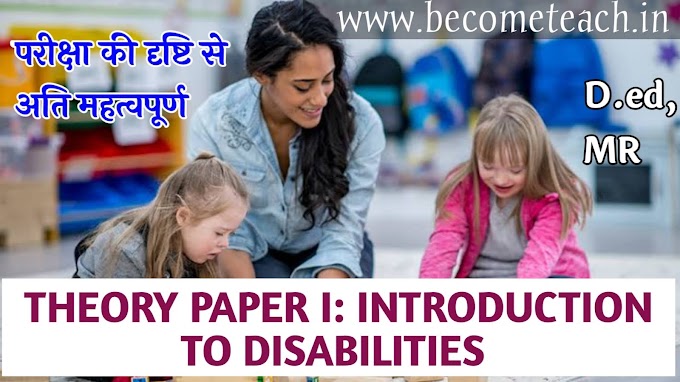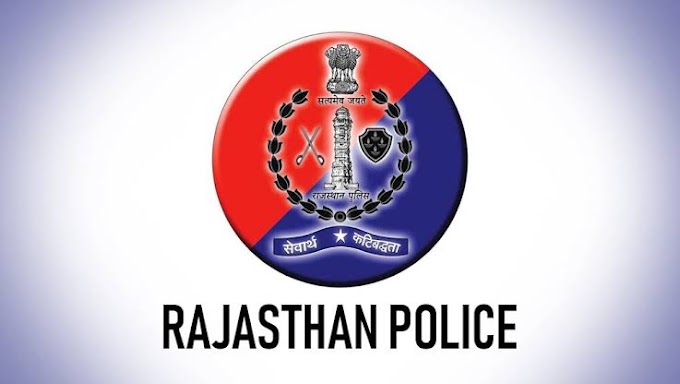6 Language and Communication pdf Ded special education hearing IMPAIRMENT
नमस्कार साथियों जैसा की आप सभी को विधित है की हमारे course के एग्जाम नजदीक आने वाले हैं तो सभी साथी अपने पेपर क्लियर करने के लिए में जहा तक जानता हु आप सभी बुक्स या नोट्स पढ़ रहे होंगे और आप अच्छे नंबर प्राप्त करने के लिए पूर्व year के प्रश्न पत्र देख रहे होंगे जिससे की आपको एग्जाम को समझने में सहायता मिलेगी
NOTES केसे प्राप्त करें
Notes को आप नीचे दिए जा रहे window से सीधा देख सकते हैं या अगर आप इसे डाउनलोड करना चाहें तो नीचे दिए जा रहे link पर जाकर download भी कर सकते हैं।
NOTES के संबंध में जानकारी
File का नाम :-6 Language and Communication pdf
Course :- D. ED (HEARING IMPAIRMENT)
FILE SIZE :- 8.8 mb
FILE PAGE :-
FILE TYPE:- typing
FILE PRICE :- 100 00
File language :- HINDI
Notes में कौन कौन से टॉपिक मिलेंगे
Unit 1: Introduction to Communication & Language (18 hours)
1.1 Definition, Meaning and Scope of Communication
1.2 Classification of Communication:
a) Human and Animal Communication
b) Human Communication (Linguistic and Non-linguistic)
1.3 Definition, Meaning and Scope of Language
a) Structure, Characteristics and Functions of Language
1.4 Innateness of languagea)
a) Competence and performance
b) Deep and surface structure
1.5 Language Development in Non-impaired (Hearing) Children
a) Pre-requisites of language development
b) Developmental phases
Unit 2: Modes of Linguistic Communication: (18 hours)
2.1 Oralism
a) Principles
b) Justification, Limitations & Programmes in India
c) New Trends – Auditory Verbal Approach/Habilitation (AVA)
2.2 Educational Bilingualism:
a) Principles
b) Sign Language (ISL, ASL, BSL, etc.)
c) Justification, Limitations & Programmes in India
2.3 Total Communication
a) Principles
b) Justification, Limitations & Programmes in India
c) Signing System (ISS – Indian Signing System i.e. Signed Hindi, Signed
Marathi, Signed Tamil, etc., Signed English, Signed French, etc. – Part of
Total Communication), Cued speech
Unit 3: Assessment of Language (18hours)
3.1 a) Meaning, Definition, Role and Scope of assessment in education
b) Formal Testing, Informal Testing & Teacher Made Test (TMT):
Meaning, difference and selection
c) Formal Assessment: standardized language testing with reference to
Indian tests
d) Informal Assessment : consistency, feedback and documentation
3.2 Assessing Basic Language Competence (BLC)
3.2.1 What is BLC
3.2.2 Language & education problems of hearing impaired children related to BLC
3.2.3 Assessing Specific language aspects involved in BLC
(Please note: The aspects given below need not be tested in isolation. The test
items should be so designed as to give information on more than one aspect. Also the
assessment should be based on the teaching–learning activities and the accompanying
language interaction done with the child/children over a period of 3 to 4 yrs. The teacher
may also assess the child’s performance in terms of Receptive language, i.e.
comprehension; and Expressive language abilities, i.e. wrong response, or one word
correct response, or response in complete sentence on demand.)
a) Everyday vocabulary (all parts of speech)
b) Use of sentence types (positive and negative statements, imperative, exclamatory,
interrogative, simple, complex and compound)
c) Use of questions (Yes / No question, Wh questions and tag questions)
d) Use of case markers
e) Use of person, number, gender markers
f) Use of tense / aspects markers
Unit 4: Acquisition of Language Competence by Children with Hearing Impairment
(18 hours)
4.1 Principles of teaching language
4.2 Methods of teaching language
4.2.1 Structural Method - Fitzgerald Key, APPLE TREE programme, Barry
Five Slate system, Colour Code System
4.2.2 Natural Method
4.2.3 Combined Method (Maternal Reflective Method)
4.3 Techniques of teaching language to children with hearing impairment –
Conversation/News, Directed Activities, Story Telling, Visits, Poems, Rhymes
4.4 Development of Language in Pre-primary Section
4.4.1 Activities for early language Development
Unit 5: Literacy skills (Listening, Speaking, Writing and Reading) (18 hours)
5.1 Meaning and Scope
Literacy related problems of Child with hearing impairment.
Development of Auditory skills (Listening)
Development of Oral Skills (Speaking)
5.2 Reading Skills :
- Activities for pre-reading skills
- Developmental, Functional, Remedial and Recreational
Conversation based and text based reading
- Loud reading and silent reading
- Guided reading & independent Reading
5.3 Development of Writing Skills
- Activities for pre-writing skills
- Copying
- Guided Writing
- Independent and Creative Writing
Notes को केसे देखे बिना डाउनलोड करे देखे
Notes को download करें
में आशा करता हूं कि आपको मेरी ये पोस्ट पसंद आई होगी और भी special education से संबंधित जानकारी व पाठ्य सामग्री प्राप्त करने के लिए site को complete visit करे ।
धन्यवाद





